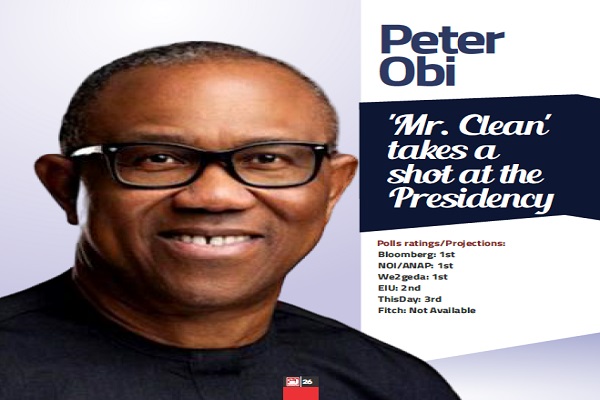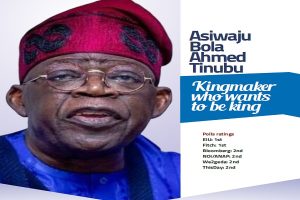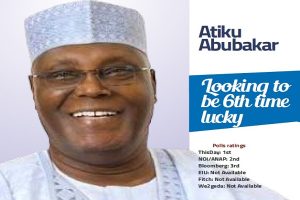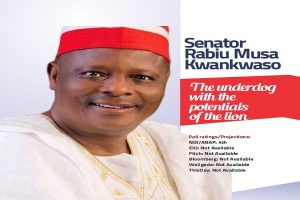
If the outcome of the forthcoming Nigeria’s presidential election were to be decided purely on the basis of the quality of the service records of the contestants, Peter Obi would win it hands down. The Labour Party candidate has earned a rare reputation for stainless and outstanding performance in his private sector career as well as during his public service stint as Governor of Anambra State for eight years.
Most of the honours and recognitions awarded him since then derive from this reputation. Take the roll: Man of the Year, The Sun Newspaper, 2007; Most Prudent Governor in Nigeria, Thisday Newspaper, 2009; Nigeria’s Most Trustworthy Governor, Champion Newspaper, 2009; Governor of the Year, West Africa ICT Development Award, 2010; Zik Leadership Prize, 2011; Best Performing Governor on Immunization in South-East Nigeria, Bill & Melinda Gates Foundation, 2012; Leadership and Good Governance Award, Ezeife Leadership Foundation, 2012; Golden Award on Prudence, Methodist Church of Nigeria, 2012; Man of the Year, Business Hallmark Newspaper, 2012; Man of the Year, Silverbird, 2013; Award for Outstanding Example in Leadership and Governance, The Voice Newspaper, 2014; Most Outstanding Igbo Man of the Decade, Champion Newspaper, 2014; and the Golden Merit Award, Nigerian Library Association, 2014.
Obi’s stainless credentials became an issue when he was nominated as a Presidential running mate in the 2019 general elections. His critics accused him of desperation for a well-adjusted and seemingly pristine person like him to accept the role of a running mate to an individual who was notorious for his baggage.
Personal accomplishments
Peter Obi, fondly called “Okwute” meaning “Rock,” was born on 19th July 1961 at Onitsha. He had his secondary school education at Christ the King College, Onitsha. In 1980, Obi proceeded to University of Nigeria, Nsukka, where he graduated with a B.A (Hons) in Philosophy in 1984.
Afterwards, his love for academic pursuit took him outside the shores of Nigeria to Ivy League and Oxbridge schools. He is an alumnus of Harvard Business School, Boston, USA; London School of Economics where he studied Financial Management/Business Policy; Columbia Business School, New York, USA (Marketing Management); Institute for Management and Development, Switzerland; Kellogg Graduate School of Management, USA, Oxford University and Cambridge.
Before his adventure into politics, Peter Obi was already a successful businessman. He held high profile positions in several establishments. Some of the companies he served include: Next International Nigeria Ltd; Guardian Express Mortgage Bank Ltd; Guardian Express Bank Plc; Future View Securities Ltd; Paymaster Nigeria Ltd; Chams Nigeria Ltd; Corp Ltd and Card Centre Ltd. He was the youngest chairman of Fidelity Bank Plc.
In addition to the aforementioned, he was appointed by former President Goodluck Jonathan as the Chairman of the Securities and Exchange Commission (SEC). Peter Obi is also a member of the Nigerian Economic Summit Group (NESG), the Chartered Institute of Bankers of Nigeria, and the British Institute of Directors (IOD).
Obi tied the knot with Margaret Brownson Usen in 1992 and they are blessed with two children: Gabriella Nwamaka Frances Obi and Gregory Peter Oseloka Obi.
Governmental/Political antecedents

Obi began his political career in 2003 when he contested for Anambra State governorship election under the platform of All Progressives Grand Alliance (APGA). The Independent National Electoral Commission (INEC) declared his opponent, Dr. Chris Ngige, of PDP winner but Obi challenged the result in court for almost three years. Eventually, Ngige’s victory was overturned by the court of appeal on 15 March, 2006. Obi then took over on 17 March, 2006. After seven months in office, the State House of Assembly, dominated by the hostile opposition party in the state, impeached him. Mrs. Virginia Etiaba, his Deputy, was sworn-in in his place, making her the first female state Governor in Nigeria’s history.
But Obi challenged his impeachment in the court of appeal and won and on February 9, 2007, was re-instated as the Governor.
Again, Obi left the governorship position on May 29, 2007 after the general elections, which Andy Uba won. As a determined elite, Obi contested Uba’s election in court, arguing that he did not complete his four-year tenure and that his tenure started running when he took office in March 2006.
After Obi’s first term, he contested again in the 2010 gubernatorial election and defeated his opponent, Professor Charles Soludo, the former CBN governor. He remained the governor of Anambra for another four-year term before handing over to Willie Obiano in 2014.
During the 2019 Presidential elections, Peter Obi was named the running mate to Atiku Abubakar, PDP’s Presidential candidate on October 12, 2018. Unfortunately, they lost to the incumbent President, Muhammadu Buhari.
Credibility/integrity
As stated earlier, Peter Obi’s unique selling point in the presidential race is his integrity and credibility. This is reflected in the number and title of the awards given by various organizations over the years as listed above. Femi Akintunde-Johnson, a public affairs commentator, says “…Obi appears like one of the brightest persons that should lead these disparate nations blithely called Nigeria into the next decade: well educated, well trained, well prepared; he comported himself above average in governance; and remarkably prudent in the management of state resources.”
National Outlook
Peter Obi has a network of friends, associates and supporters across the country, built over the years during his service in the private and public sectors. That network was boosted when he crisscrossed the country on a campaign stump as the presidential running mate to Alhaji Atiku Abubakar of PDP in 2019. Although PDP lost that election both at the polls and in the courts, not a few of its members still believe the results were manipulated to the advantage of the ruling All Progressives Congress (APC).
Now that Obi is back in the presidential race on his own ticket, he stands shoulder-to-shoulder with the frontline contenders. Obi may not command the campaign war chest that fellow contenders Tinubu and Atiku do; he may not have the political structures in the mould of APC and PDP; but the Labour Party candidate can count on a huge population of youths and non-partisan adults, two significant demographic groups, that are yearning for a change in status quo. His opponents know that his top rating by the various polls and projections is not a fluke. That is why they are investing so much time and other resources directing their campaign arrows at him.






